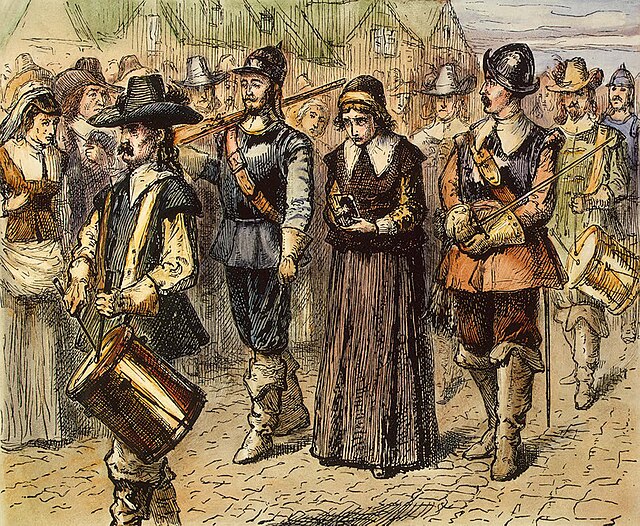Christopher Holder (1631–1688), was an early Quaker evangelist who was imprisoned and whipped, had an ear cut off, and was threatened with death for his religious activism in the Massachusetts Bay Colony and in England. A native of Gloucestershire, near Bristol in western England, Holder became an early convert to the Society of Friends, and in 1656, at the age of 25, made his first voyage to New England aboard the Speedwell to spread his Quaker message. All of the Quakers in his group were imprisoned, and then sent back to England on the same ship. Undeterred, Holder returned to New England aboard the small barque Woodhouse, landing in New Amsterdam in August 1657 despite few predictions of success. Though young, he was a leader among the eleven Quaker missionaries that fanned out among the American colonies. Holder, with his frequent companion John Copeland, went north to the Massachusetts Bay Colony to begin their evangelistic efforts in the face of increasingly threatening anti-Quaker laws. With little success on Martha's Vineyard, they moved to Cape Cod where they were warmly received in Sandwich, establishing the earliest Quaker meeting in America.

George Fox founded the Quaker religion in about 1647
The Woodhouse sailed through Long Island Sound in late May 1657, landing on the first day of June.
John Endecott was the Massachusetts governor during most of the Quaker persecutions.
Charles II was restored to the throne under the Declaration of Breda which offered religious liberties to the Quakers.
The Boston martyrs is the name given in Quaker tradition to the three English members of the Society of Friends, Marmaduke Stephenson, William Robinson and Mary Dyer, and to the Barbadian Friend William Leddra, who were condemned to death and executed by public hanging for their religious beliefs under the legislature of the Massachusetts Bay Colony in 1659, 1660 and 1661. Several other Friends lay under sentence of death at Boston in the same period, but had their punishments commuted to that of being whipped out of the colony from town to town.
John Winthrop
John Endecott
"Mary Dyer led to execution on Boston Common, 1 June 1660", by an unknown 19th century artist







